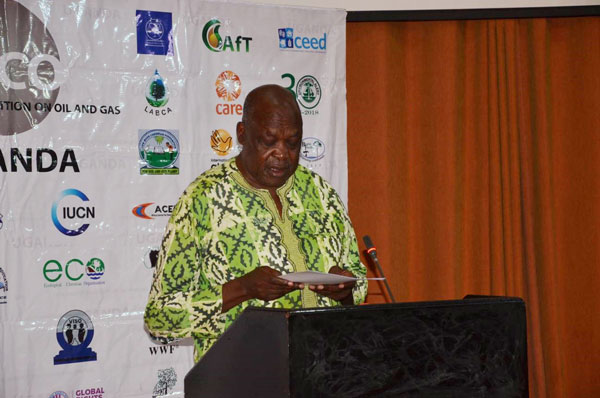
COMMENT | Joseph Mukasa Ngubwagye | The last lap to oil production is upon us. Indeed, if the government’s prediction is anything to go by, the first drop of oil is expected out of the ground in 2025. It has been a long journey since 2006 when commercially viable quantities were discovered but finally the end is in sight.
From the exploration phase to the development phase currently, a number of preparations have been made to ensure that the oil and gas sector is well managed to lead to hastened sustainable development for the country. One of such preparations is the development of a policy, legal, regulatory, and institutional framework.
A robust policy and legal regime is key in ensuring transparency, accountability, and efficient use of revenues from the oil and gas sector. Weak and incomprehensive policies and laws on the other hand can create a powder keg of economic instability, social conflict, and lasting environmental damage. Countries with non-renewable resource wealth face both an opportunity and a challenge; strong policies and laws are an important gatekeeper against the latter.
Since the formulation of the National Oil and Gas Policy in 2008, several laws have been enacted by parliament which include the Petroleum (Exploration, Development and Production) and the Petroleum (Refining, Conversion, Transmission and Midstream Storage) Acts of 2013. Other relevant laws passed include the National Environment Act of 2019 and the National Content Act of 2020 among others. The previous parliaments therefore played their part in the regulation of the oil and gas sector and it is now the 11th parliament to deliver the first oil. If it was a game of relay, the 11th parliament has the baton; they can choose to distort the race or cross the finish line neatly and in a winning fashion. This will determine whether the oil resource becomes a curse or a blessing to the citizens of Uganda.
On 9th September 2021, the Parliamentary Forum on Oil and Gas (PFOG) together with the Civil Society Coalition on Oil and gas (CSCO), and with support from the Worldwide Fund for Nature (WWF – Uganda Country Office) organized a one-day symposium on Uganda’s petroleum sector.
The enthusiasm to learn and understand the sector exhibited by the members of parliament was overwhelming. In fact, the number exceeded what had been anticipated. It was impressive to see them sit and listen to various presentations attentively all day long. This is commendable, and it is the right thing to do if they are to serve their electorate and the country better. Oil and gas is a highly technical field that requires deliberate effort if one is to fully understand it. It is only then that well-informed choices can emerge out of legislative processes for the sector.
While opening the symposium, the Minister of State for Minerals Peter Lokeris asked the members of parliaments to expeditions enact bills on the oil and gas sector into law once presented. Some of the bills he informed members to expect in the shortest time are the East African Crude Oil Pipeline (EACOP) Bill, 2021; the Public Finance Management Act Amendment Bill, 2021 and the Income Tax Amendment Bill, 2021. The former two have already been tabled in parliament.
Whereas it is important that such laws are enacted faster, it is more important that the process is thorough, and that it captures the best interest of the public which the members of parliament represent. As such, knowledge of the sector is critical if a quicker pace is to be guaranteed. Once members have a deep understanding of the sector, faster enactment of not just laws but good laws is assured.
Members of parliament must therefore take individual efforts to educate themselves about the oil and gas sector for their own benefit and for the benefit of the people they represent. Parliament as an institution needs to prioritize capacity building for its members in oil and gas issues such that they are able to contribute meaningfully to the debates on oil related bills. Benchmarking countries which are known to have exploited their oil resources in impeccable ways is extremely helpful.
*****
 Joseph Mukasa Ngubwagye is a Senior Research Fellow Oil Governance and Environmental Sustainability Project Advocates Coalition for Development and Environment (ACODE)
Joseph Mukasa Ngubwagye is a Senior Research Fellow Oil Governance and Environmental Sustainability Project Advocates Coalition for Development and Environment (ACODE)
 The Independent Uganda: You get the Truth we Pay the Price
The Independent Uganda: You get the Truth we Pay the Price



